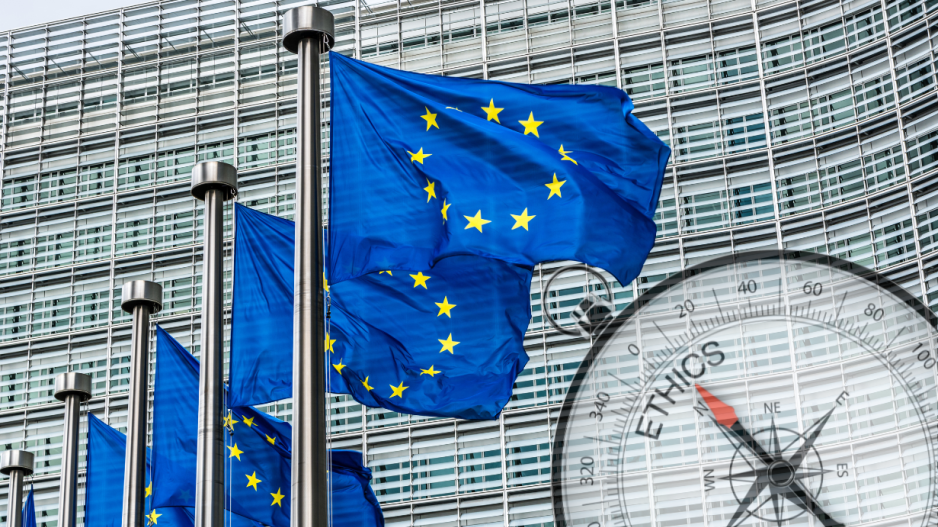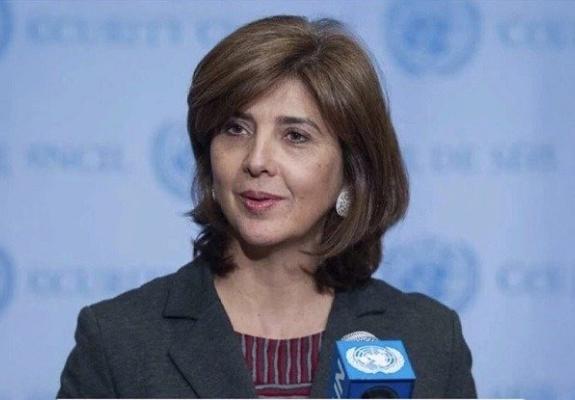EU Unveils Groundbreaking Ethics Body to Ensure Transparency and Accountability
The Dawn of a Unified Ethical Framework Post-Qatargate
Following the Qatargate scandal that rocked the foundations of Brussels institutions, the European Commission unveiled its proposal to establish a European interinstitutional Ethics Body that would enhance transparency and accountability within the European Union. This initiative was first announced by Ursula von der Leyen (President of the European Commission) at the beginning of her mandate, with the objective of becoming a democratic milestone promoting common standards for ethical conduct among EU institution members, bringing about a new era of clarity, transparency, and comprehensibility in the ethical conduct of its politicians.
The proposed standards cover a broad range of areas, including the acceptance of gifts, hospitality, and travel from third parties. These standards will also apply to the acceptance of awards, decorations, prizes, or honours.
Furthermore, importantly, the framework will incorporate measures focused on conditionality and transparency, particularly in connection with meetings involving interest representatives. These measures will expand upon the established common standards in the European Commission, the European Parliament, and the Council for such encounters, guaranteeing transparency through the Transparency Register and granting access to institutional facilities.
The Ethics Body will also supervise the declaration of interests and assets, establish relevant categories, and outline the procedures for monitoring these declarations. Through these mechanisms the Ethics Body will be able to address the extracurricular or external activities of members to safeguard their availability and independence, offering guidelines for the post-mandate activities of former members, which will establish conditions and transparency prerequisites.
Crucially, the implementation of this common framework will encompass monitoring compliance and follow-up, including addressing cases of harassment and potential sanctions within each institution. The proposal also underscores the importance of making information public, compelling each institution to disclose how they apply these ethical standards.
In the wake of the Qatargate scandal, disparities in transparency standards within different EU institutions came to light, with undisclosed 'lobbying efforts' by third-country actors highlighting the systemic issue of a fragmented framework. As a result, there is a pressing need for the establishment of an Ethics Body to foster a more cohesive and uniform ethical framework and transparency mechanism across EU institutions.
While the Treaties lay down general rules and principles of conduct, each institution has developed its own rules of procedure or Codes of Conduct, leading to complexity and dispersion. This fragmentation stems from variations in roles and inherent risks associated with different duties within each institution. Nevertheless, the creation of a common culture of ethics, characterized by high standards and cooperation among institutions, is now deemed essential and a key priority.
The Ethics Body will be tasked with three main functions:
-
Developing Common Minimum Standards: These standards, outlined in the proposal, will serve as a minimum baseline. Institutions remain free to adopt even stricter internal rules, but these standards cannot be used to lower existing ethical regulations.
-
Facilitating Exchange of Views: The Ethics Body will encourage an open dialogue among institutions, enabling them to align their internal rules with the established standards. This collaboration will foster shared knowledge and best practices.
-
Promoting a Common Ethics Culture: The Ethics Body will actively work towards instilling a common ethics culture across EU institutions. This includes making the framework easily understandable for both insiders and outsiders, promoting transparency in rule application, and encouraging other Union bodies, offices, and agencies to voluntarily adopt the common standards.
Importantly, the new Ethics Body will not engage in individual investigations and will not interfere with existing bodies' investigations. It remains separate from the European Public Prosecutor's Office (EPPO) and national authorities responsible for criminal cases affecting the Union's financial interests. Similarly, it does not overlap with the duties of the European Anti-Fraud Office (OLAF), the Ombudsman, or the individual institutions concerning breaches of their respective rules.
A key criticism of the proposal has been that it remains toothless in practice, as it lacks the authority to launch investigations or impose sanctions. Against this backdrop, the European Parliament passed a resolution in July, calling on the European Commission to present a more ambitious proposal that would provide the Ethics Body with investigating and sanctioning powers, more protection for whistleblowers, and stricter transparency rules for NGOs.
Despite the resolution for a stronger Ethics Body, it was notable that the European People's Party backed out of the resolution. This has showcased that the European Parliament finds itself deeply divided on the proposal as Members of the European Parliament on the left advocate for a more robust body, while the right seeks a name change while supporting the core concept proposed by the European Commission. Moreover, centrists, however, express such disappointment that they are reluctant to engage with the proposal.
As last September marked the commencement of the European Parliament's endeavours, the stage is set for dynamic discussions and negotiations regarding the European Commission's proposal. Through an ongoing interinstitutional dialogue, the goal remains to forge a consensus, shape the final legal text and determine the extent of the authority vested in the Ethics Body, all with an eye toward a future of better governance.
On a local level, following numerous recommendations by GRECO and the Venice Commission, with the Rule of Law reports highlighting significant gaps in the institutions and corruption scandals destroying any international dignity, the Republic of Cyprus proceeded with the preparation of a legislative framework against corruption, which was included as a prerequisite for the disbursement of the first tranche of the Recovery and Resilience Plan.
This legislative framework consisted of three pieces of legislation. The first was the establishment of an Independent Authority against Corruption (The Authority), the second was the regulation of lobbying and the third was the protection of whistleblowers. These legislations were submitted before the House of Representatives in 2019 and after long discussions in the relevant committees, they were voted and put into law in 2022. However, the substantive provisions of these three legislations remain inapplicable.
Currently, the Authority is far from being fully operational to undertake its role in establishing ethical mechanisms and guidelines that would be the first vital steps towards a change in conduct and culture, and the emergence of more professional and transparent mechanisms within the democratic space. With major structural issues still to be solved, such as being understaffed, the Authority has not been able to take any substantial initiative to effectively fight corruption. This is despite the fact that it has received dozens of complaints, no investigation has been completed and made public.
The existence of the legislative framework to fight corruption in Cyprus is a positive step. However, as long as its basic provisions remain unimplemented, the competent Anti-Corruption Authority is dragging its feet and the political system is indifferent, we cannot expect any positive impact. The only hope remains once again in the European Union, which, with its own regulatory framework, can exert the necessary pressure on the Republic of Cyprus to comply with European guidelines.
A comprehensive yet concise description of 'lobbying' entails the practice of advocating for specific issues and engaging with government stakeholders and decision-makers, whether by private entities, NGOs, or other organizations. This type of communication acts as a platform that enables the representation of diverse interests and perspectives, ultimately fostering a more robust and transparent democratic process. Importantly, when conducted within a defined code of conduct and regulatory framework, 'lobbying' becomes an instrumental tool for the exchange of information, data, and perspectives, contributing to the development of policies and legislation that cater to the multifaceted needs of various stakeholders and citizens, while simultaneously promoting transparency and reducing corruption.
The enactment of the National Lobbying Act in the Cypriot Parliament marks a promising step towards positive reform. Nevertheless, its enforceability is currently hindered by pending tasks, which involve the establishment of a national registry for "lobbyists" and "lobbying activities," as well as the formulation of a code of conduct to guide the individuals included in this registry.
In Europe, and across the world, regulated “lobbying” is an important aspect of the democratic process being underpinned with national registries, rules, and codes of conduct. Moreover, it is part of the democratic culture and is a service provided under the umbrella of public affairs and government engagement.
Therefore, it is crucial for the Independent Authority against Corruption to implement the pending tasks and reinforce the local legislation on 'lobbying'. This would mark the commencement of a process of reaching a point that would allow the market, associations, and organizations to voice their concerns within a regulated framework and guided by a code of conduct. This approach holds the potential to prompt the growth of a dynamic market for public affairs and government engagement services, employing professional and transparent methods to advocate unique positions, and influence positive social, economic, political, and environmental outcomes in the nation, ultimately contributing to significantly reduced corruption.
-






